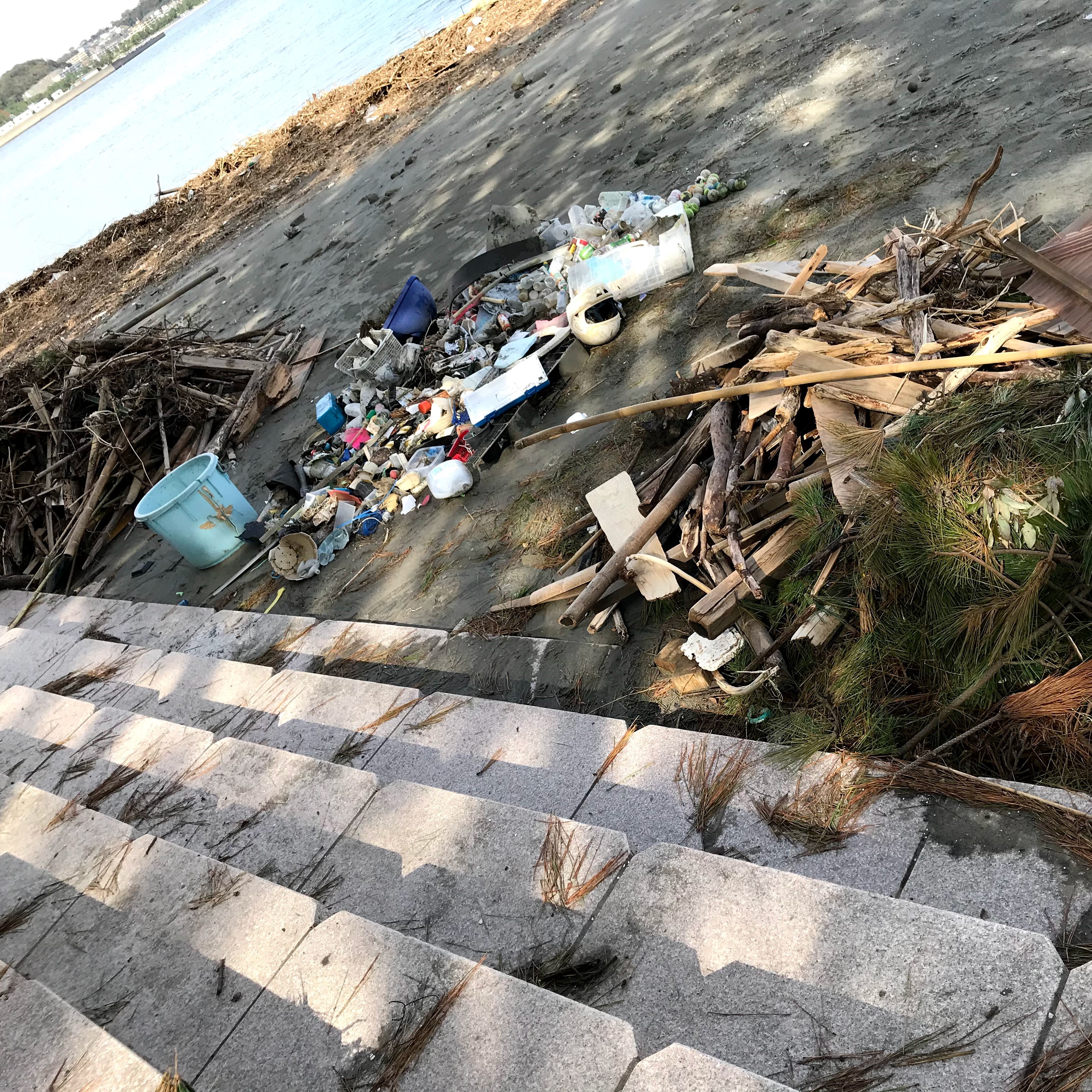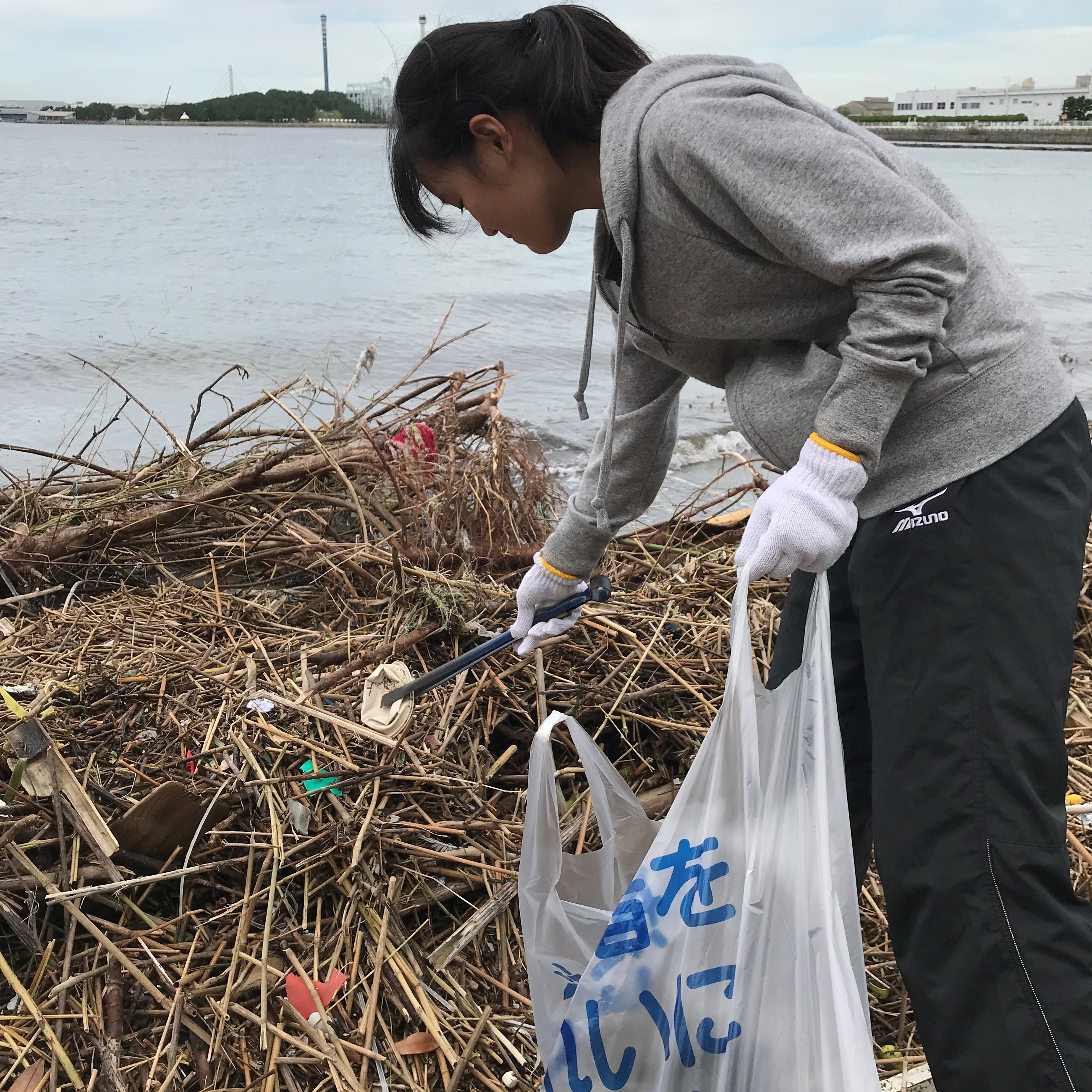Activity Report -Fieldwork-
2019.5.17 Visit to Ministry of the Environment
I learned that recycling is a process of turning used plastic products into new plastic products, but there are various challenges.
1. Cost issues
In recycling, it is necessary to sort and collect used plastics by type, and then to sort out foreign substances. This requires re-melting the collected plastics into a product, which is troublesome and increases costs.
2.Development of plastics that are easy to recycle
Products that are mixed with various types of plastics will degrade when recycled. Additives hinder recycling. However, additives are not easy to be removed because they play a role in preventing combustion. It is important to develop plastics that are easy to recycle.
3.Expand the use of recycled plastic
Even if recycling technology has improved and recycled plastic has become widespread, it is meaningless without its use. Along with technological development, it is necessary to consider the use of recycled plastic.
Marine plastics have serious effects on marine life, but many of them are based on physical causes such as suffocation and nutritional deficiencies caused by accidental eating, and chemical causes are not clear. Without knowing the size of the hazards of chemicals, it would be difficult for a country to set standards for plastic components. We learned that it is important to stay calm and understand the issues, such as how much impact plastic itself has on humans and animals as a chemical substance, specifically how it affects the lifespan.
By visiting the Ministry of the Environment, we were able to learn about Japan's issues and challenges.
2019.5.17 Visit OWS
* OWS is a non-profit organization that actively engages in “getting in touch with nature,” “learning nature,” and “telling the importance of nature” through the interaction between the sea and living creatures.
Since its founding, OWS has been focusing on the garbage problem on the Midway Atoll in the Northern Hawaiian Islands, and was able to learn more about the garbage problem occurring on Midway Atoll. They showed us a photo of plastic trash found in chicks of diomedea immutabilis and a movie of a seal entangled in a fishing net. They also showed the plastic trash that was actually removed from the chicks of the diomedea immutabilis (lower left) and the actual plastic garbage collected at the coast (lower right). The plastic garbage found in the chicks was bigger than I expected.
We learned that biodegradable plastics that are not 100% biodegradable are available as biodegradable plastics. We were very surprised because we believed that biodegradable plastics were made of 100% biodegradable materials. He also told us that biodegradable plastics have not been specifically defined making them difficult to spread in society.
・About processing of plastic
We learned that out of the recycling rates indicated by the government, 60% was thermal recycling that burns and processes, and the feasibility of introducing European composting systems in Japan.
Regarding the future prospects, we learned that thinking about solutions having benefits for consumers could spread a sense of crisis about the problem to society as a whole and it improve the current situation of marine plastic problems. The visit to OWS raised a sense of crisis for marine plastics and triggered a rethink of what we should do.
2019.9.10 Discussion with Mitsuo Uematsu
1.The essence of the marine plastic problem.
We were advised by him that it’s necessary to determine the essence of that problem ; whether it is ideal not to use plastic, or to use plastic and don’t leak to the sea.
2.Investigation method
He pointed out that it is important to obtain more credible information, such as by following the original dissertation, not relying on the information obtained on the Internet. In addition, we learned that when taking a questionnaire, it is necessary to reflect on the occupation and the age group to be targeted.
2019.10.26 Participation in beach trash picking
A society in which the sea is built Blog 2019.10.31
A society in which the sea is built Home pege


2019.12.3 Discussion with Dr.Mitsuo Uematsu
1. Originality
By increasing the ratio of original parts that can only be found on our web, we have differentiated it from other webs that pick up on marine plastic issues, and received advice that many people could see it.
2.Multiple perspectives
We received suggestions not only from the perspective of not making plastic unnecessarily, but also from the perspective of reducing the amount of plastic waste "flowing into the sea". We also learned that it was necessary to focus not only on the domestic affair but also on Asian countries with high plastic waste flows.
3.About the web
We were pointed out that there are graphs with hard-to-read items and difficult-to-understand titles, and we have corrected them. Also, we changed the text because the purpose of our activities was different from the web.
・About the February 1 Forum
He advised high school students that it would be desirable to make presentations focusing on thinking and solutions for marine plastic issues from high school perspective. We also considered visiting plastic manufacturing companies.